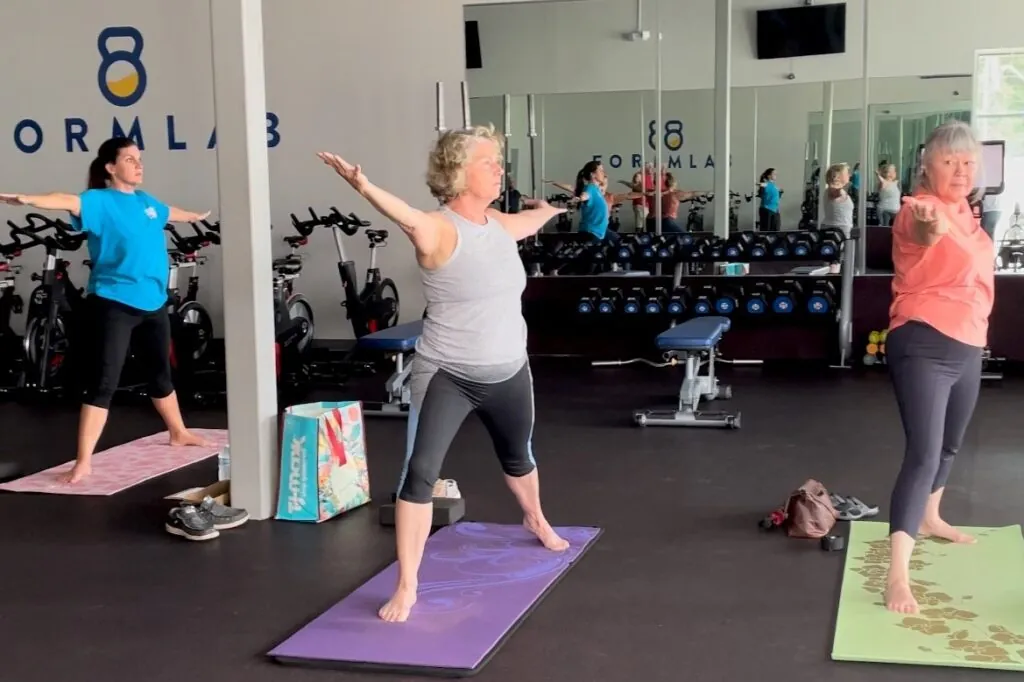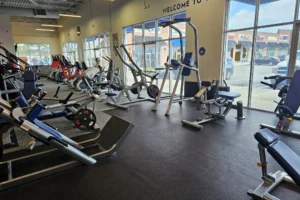Yoga is often shrouded in a veil of mystery and misconceptions. Many people hesitate to start practicing yoga, fearing it might be too difficult, or perhaps not challenging enough for it to count as a workout. This article aims to debunk common myths about yoga, shine a light on its true challenges, and outline the profound benefits it offers both mentally and physically.
Common myths about yoga
Yoga is only for flexible people
One of the most prevalent myths is that you need to be naturally flexible to practice yoga. This misconception can be intimidating for beginners who feel they aren’t bendy enough to even start.
However, yoga is for everyone, regardless of flexibility level. It’s about personal progress and using poses to enhance your body’s capabilities. Over time, practicing yoga can significantly improve your flexibility, but it’s not a prerequisite to begin.
Yoga is not a ‘Real’ workout
Many view yoga as a gentle stretching routine, not equating it with the calorie-burning effects of more vigorous exercises. This myth couldn’t be further from the truth. Yoga can be as gentle or as challenging as you make it.
Styles like Vinyasa or Ashtanga are dynamic and physically demanding, providing cardiovascular, strength-building, and endurance training benefits. Moreover, even the more meditative forms of yoga require intense mental discipline and contribute to muscle toning and strengthening through sustained poses.
Yoga is too slow and boring
For those accustomed to high-energy workouts, yoga might seem slow or dull. In reality, yoga’s pace is meant to foster a deeper awareness of the body, mind, and breath. This mindful practice helps to refine your concentration and mental focus, turning what might initially appear slow into a powerful exercise in mental and physical endurance.
If you want to try yoga in Brunswick, get your 3-day free pass at HiTone Fitness and start your journey free of charge.
The real challenges of yoga
Understanding the poses
Yoga poses (asanas) might look straightforward, but they require significant precision and mindfulness. Each pose has specific physical alignments and muscle engagements which, when executed correctly, enhance the body’s strength and flexibility.
The challenge lies in mastering these alignments and learning to hold the poses, which can be quite physically demanding.
The mental aspect of yoga
Often overlooked, the mental component of yoga is one of its greatest challenges. Yoga demands present-moment awareness, which can be a significant shift for those used to multitasking or constant external stimulation.
The practice encourages a mental state of mindfulness that can help manage stress and anxiety, making it a powerful mental workout.
Benefits of Regular Yoga
Physical benefits
Regular yoga practice offers a plethora of physical benefits. These include increased flexibility, stronger muscles, better posture, and enhanced balance.
It also boosts cardiovascular health, aids in weight management, and can alleviate chronic pain conditions such as back pain and arthritis.
Mental health benefits
Yoga’s impact on mental health is profound. It is known for reducing stress and anxiety through its meditative practices and breath-focused exercises. Regular practice fosters a greater connection between mind and body, leading to improved mental clarity, concentration, and calmness.
The discipline of yoga can also enhance mood and overall sense of well-being, making it a comprehensive tool for mental health maintenance.
However, if you’ve experienced pain after a yoga session, see what usually contributes to muscle soreness post-exercise.
Final thoughts
As we’ve explored the myths and realities of yoga, it becomes clear that yoga is not just about bending into complex poses or sitting quietly on a mat. It’s a holistic practice that integrates physical strength, mental focus, and emotional balance. Most importantly, yoga is accessible to everyone, regardless of age, fitness level, or flexibility.







